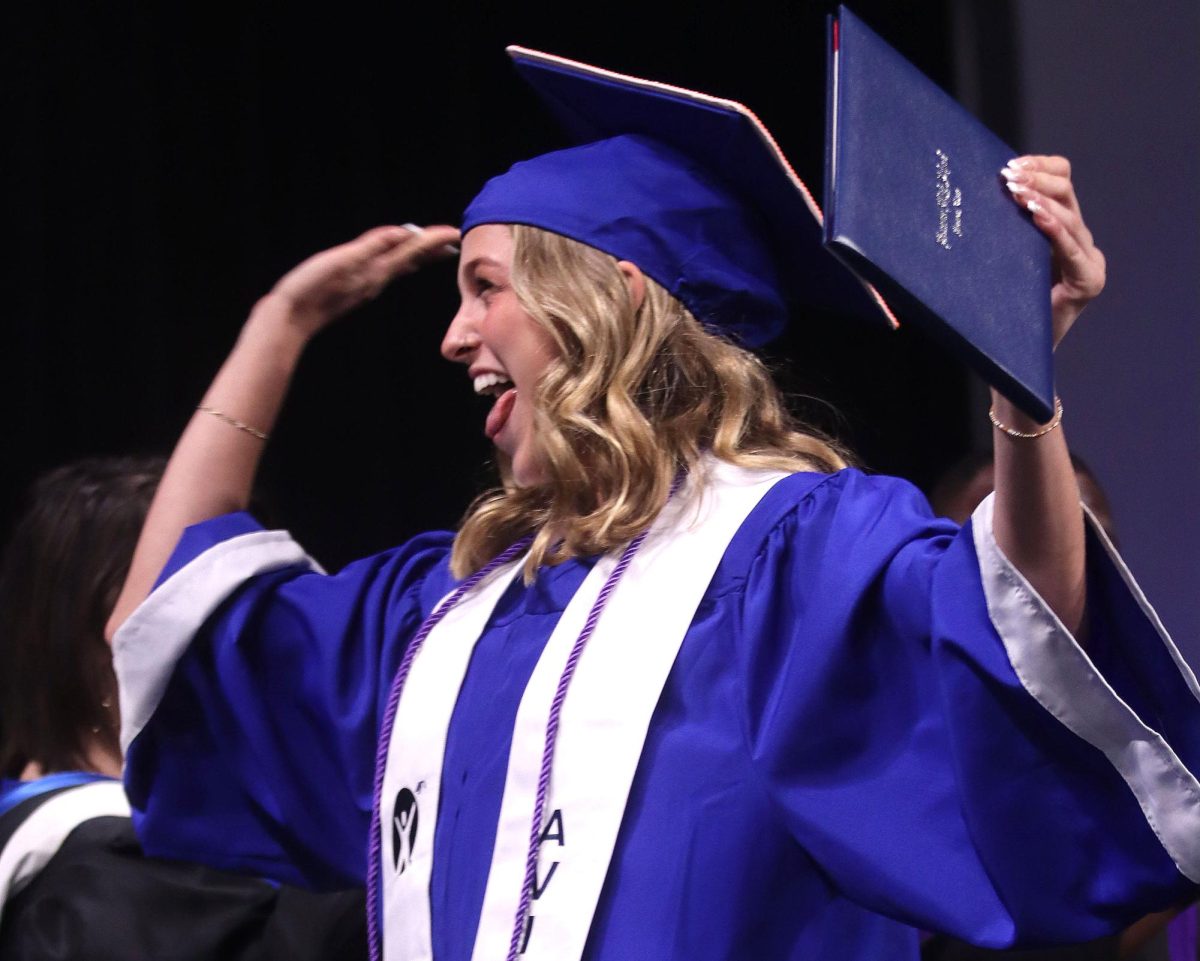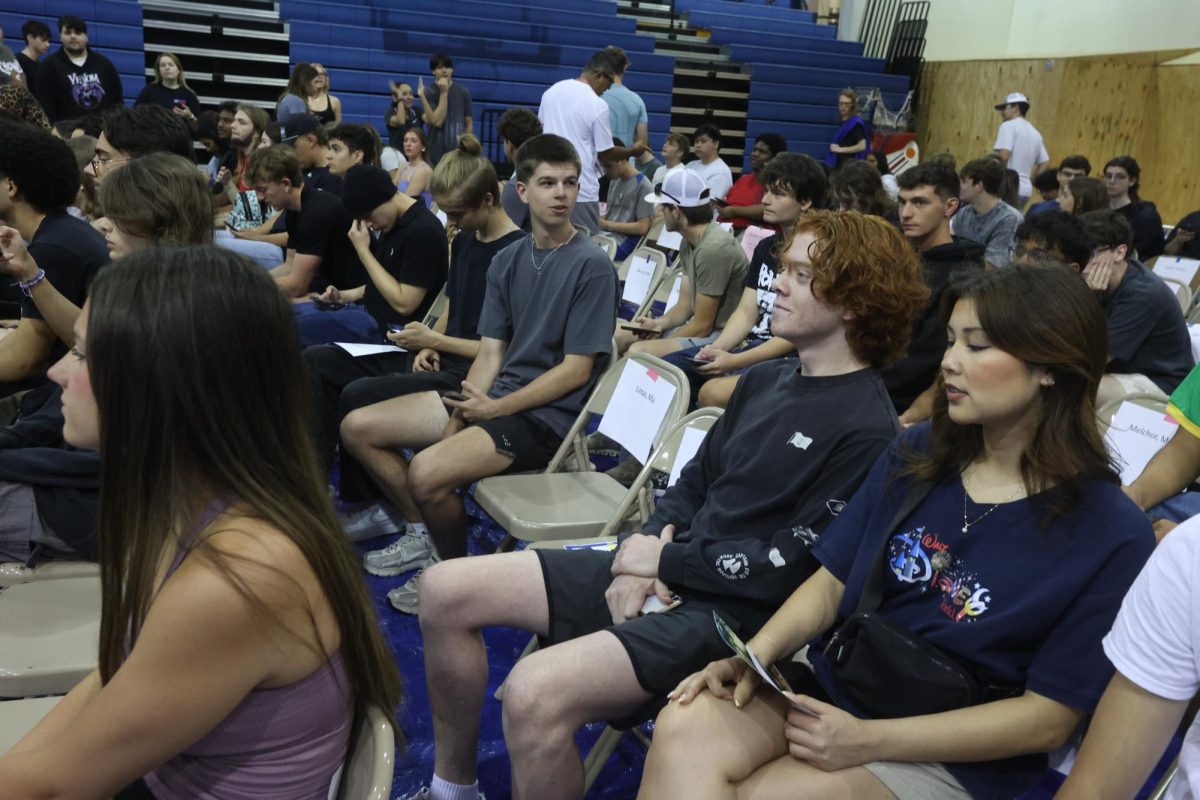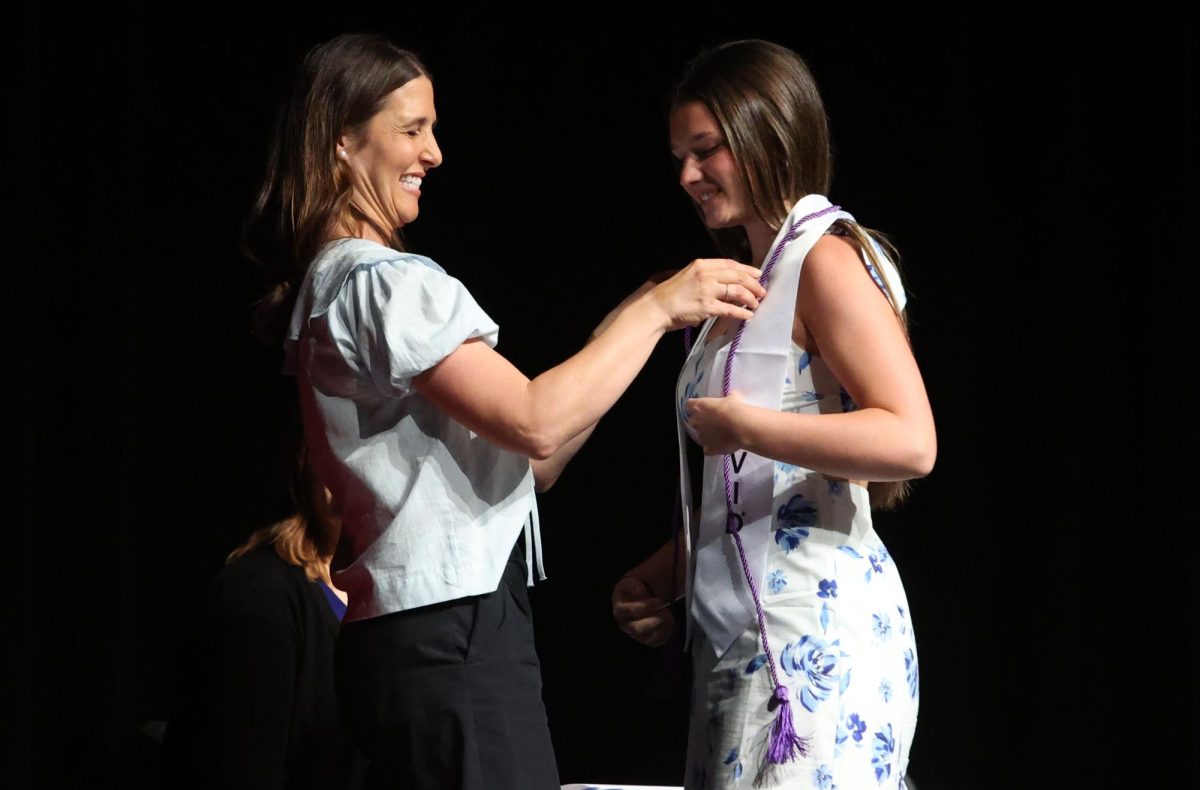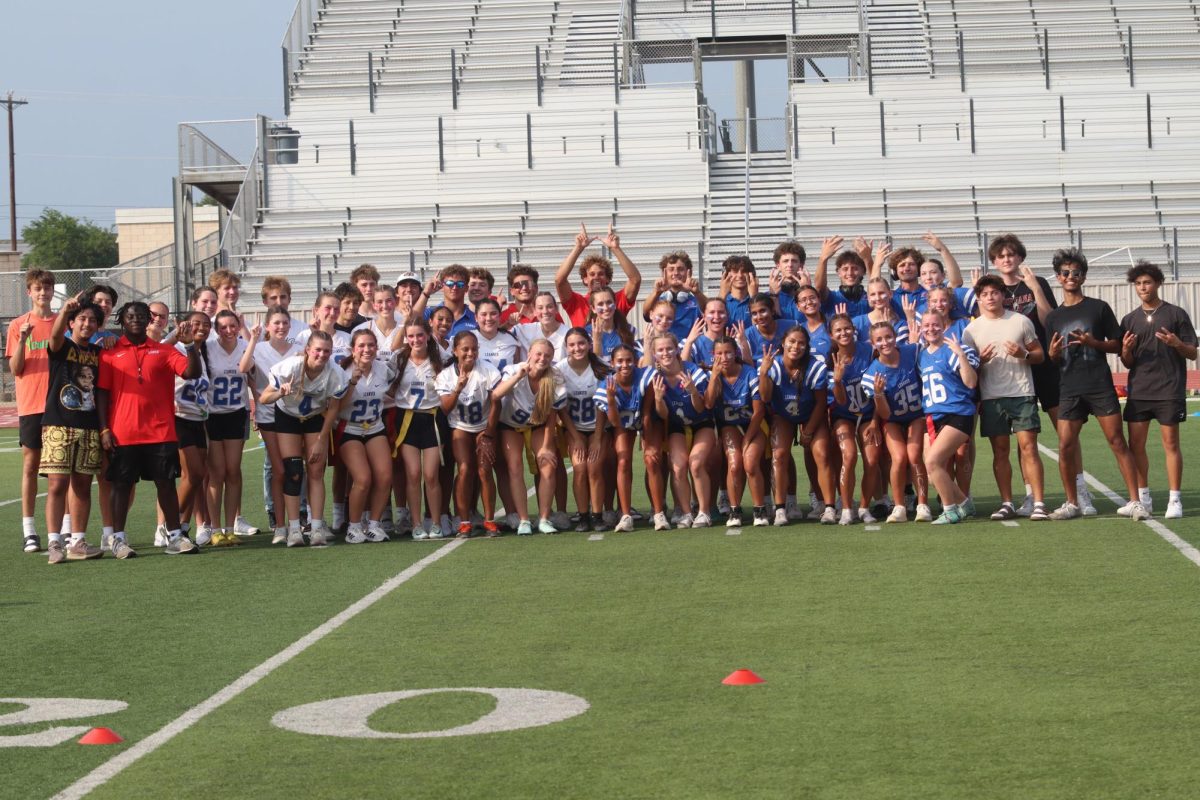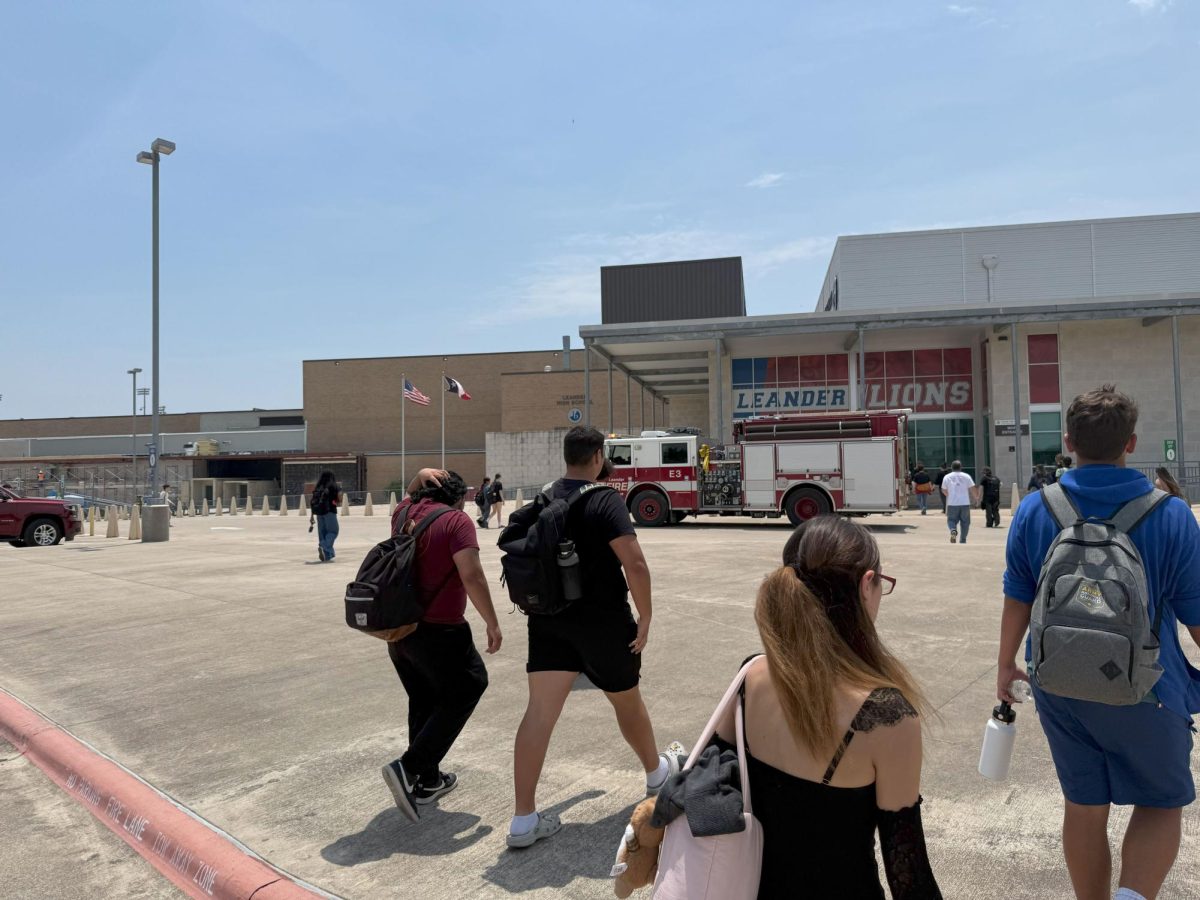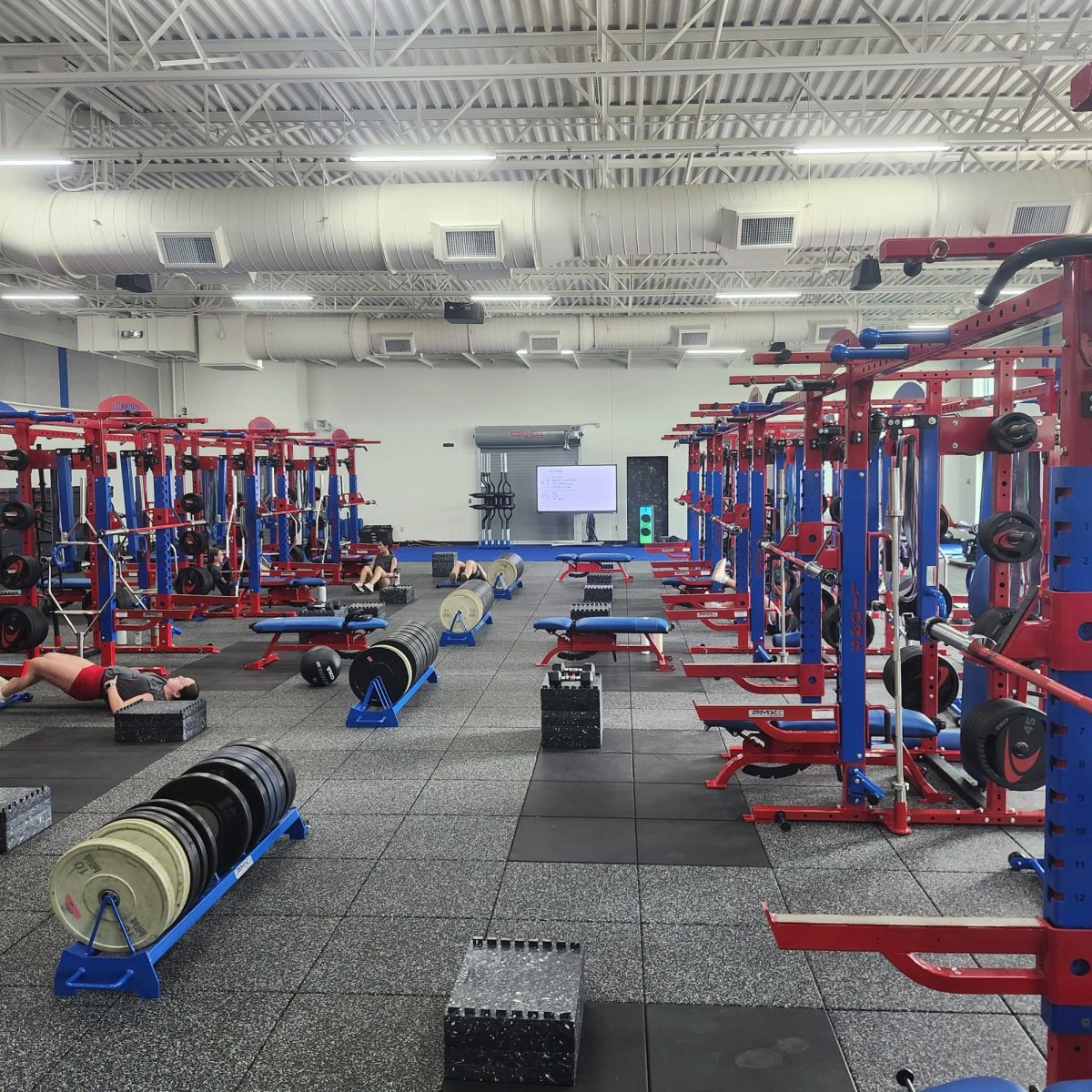By Ashley Bagwell
On Friday Oct. 9, senior International Baccalaureate students expanded their cultural horizons by taking fifth period to talk with 17 journalists from various African countries.
These countries included Sierra Leon, Angola, Ruanda, Ethiopia, Swaziland, Zimbabwe, South Africa, Nigeria, Liberia, Mozambique, Guinea, Cameroon and Uganda and the journalists were chosen by the United States embassies in each country.
Students discussed how different cultural perspectives contribute to various views on nuclear weapons, politics, raising children and women’s roles in the industry of journalism.
According to one journalist, women’s roles in broadcast journalism are growing because the general populations of many more developed African countries prefer to see women on the television. However, the main source of information for many African’s are their radios, because several places in the less developed areas of the continent are without power, and these workplaces are still heavily dominated by men who are able to go on campaign trails, were women are held responsible for raising a family.
Another set of topics discussed by the journalists were the various levels of governmental control in the media. In countries like Zimbabwe there can be as few as one television news station and four radio news stations, all owned by the government. Whereas in countries like Nigeria, there are both state and privately owned news sources, and as a result there is very little governmental control over the media.
The final question asked before time ran out got some interesting responses from the journalists.
“If, hypothetically, there were no limitations on what you could write, what would you chose to write about?” asked Chris Panyathip, senior.
While a few of the journalists laughed to themselves at the hundreds of possible answers and a few more tried to explain that this was impossible, one Ugandan reporter answered, without pause, that he would write about corruption.


